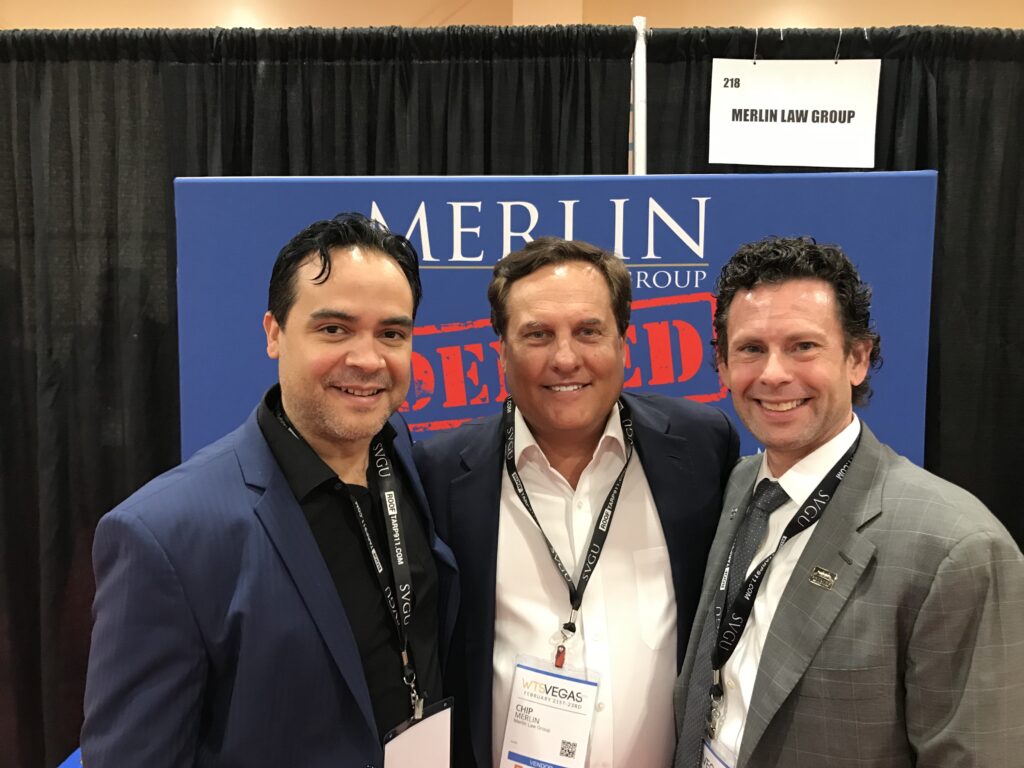
The battles and debates about insurance restoration pricing and reasonable costs were hotly discussed at the Win The Storm Conference. Merlin Law Group set up a sofa next to our booth and more than two dozen contractors, public adjusters, attorneys, and construction suppliers had at least 15-minute conversations with me about pricing and other topics. Some conversations went for more than an hour. I learn a lot listening to others and especially from those who operate where the “rubber meets the road.”
During breaks from these conversations, I researched the various issues raised by my “couch confessors.” One article post I found from Construction Program and Results was particularly interesting about an industry construction pricing standard:
[T]here is no such industry standard. There never has been and there never will be. If you have read our book “Markup and Profit; A Contractor’s Guide“, you know that few contractors can operate a business and breakeven at cost plus 10%, let alone make a profit. The idea that a contractor can survive at a low markup defies the mathematics of basic business and common sense.Our belief is that this “industry standard” of cost plus 10% was created by architects. At some point, an architect put a limit in their specifications of cost plus 10% on the amount the contractor could charge the home or building owner. The reason for the limit was to help the architect or designer look good to the building or home owner. In short, they helped “save” the owner some money.
. . . .
How do you combat this nonsense? Here is my best advice:
Don’t take any jobs where someone else tries to tell you how much you can charge for your work. (This includes architects, engineers, owners, government entities, insurance companies or commercial companies.) Your price is your decision alone. If all contractors would stick to this rule, this nonsense would go away because companies that try and dictate what contractors can charge simply couldn’t get their jobs built.
Of course, there is a lot more to this topic than one article. I find the federal government guidelines for change orders to be very thought provoking when considering proper pricing for construction. We will continue to discuss how pricing can be more fairly determined and how problems are associated with those who become too attached to Xactimate as “the standard.”
My view is that contractors deserve a fair profit and enough profit so they can stay in business and do a quality job for the policyholder, as I discussed in yesterday’s post, Estimating a Reasonable Construction Price—Thoughts Following the Win The Storm Conference, and Restoration Contractors Providing Great Quality Workmanship Are Policyholder Friends But Many Insurance Companies Refuse To Pay For Quality.
Steve Badger must have had an excellent hourlong workshop session because even contractors complimented his manner of presentation. While public adjusters and restoration contractors also were upset because they did not feel he agreed with their “other side of the story,” Badger made several points which nobody could disagree. One primary point is that making up fake invoices to help support a claim is insurance fraud. Xactimate construction expert Steve Shannon said the same thing in his workshop.
Badger had a lot of examples to show the entire audience. I have no idea how widespread the problem is, and I do not think anybody can quantify this accurately. Construction Business Owner has an online article, Most Common Types Of Construction Fraud, discussing fake invoices.
I suggest that if you put yourself in the position of an insurance company adjuster or claims manager who has seen a lot of these fake invoices, you may be able to appreciate that those working the construction claims pricing from the insurance company side may legitimately become skeptical. Those making up invoices are making it difficult for everyone.
Finally, I would like to correct a crazy rumor about Steve Badger which I heard at Win The Storm—Badger is not getting on the Board of Directors of the Texas Association of Public Insurance Adjusters. Badger was yelled at and called out after I debated him in Austin, Texas. Many TAPIA public adjusters cannot stand to be in Badger’s presence. Personally, I think it is extraordinarily important to hear differing views and suggest those of us on the policyholder and contractor side intelligently and logically show why the insurance industry should have a change of heart on many of these important claims issues.
Thought For A Monday
The biggest thrill wasn’t in winning on Sunday but in meeting the payroll on Monday.
—Art Rooney, Pittsburgh Steelers owner
A Song For Monday




